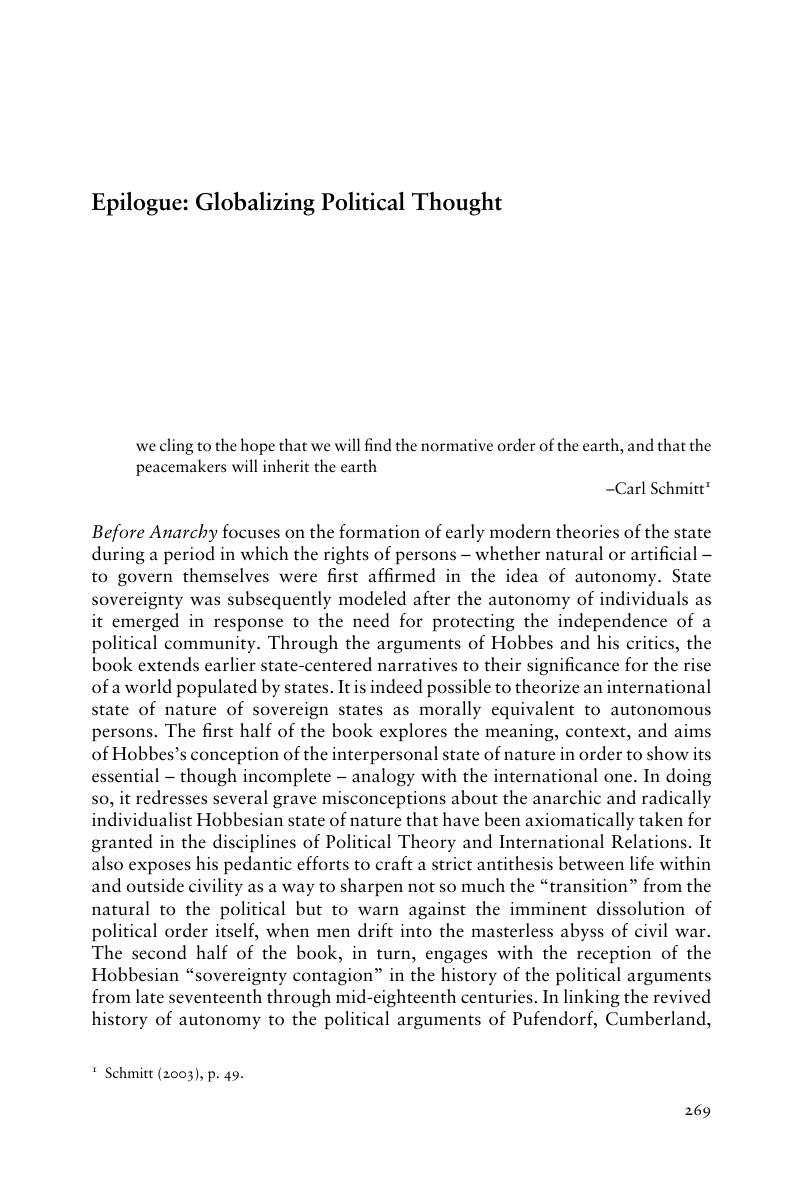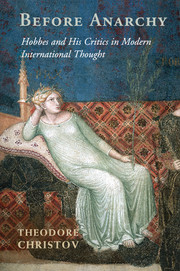Epilogue: Globalizing Political Thought
Published online by Cambridge University Press: 05 January 2016
Summary

- Type
- Chapter
- Information
- Before AnarchyHobbes and his Critics in Modern International Thought, pp. 269 - 282Publisher: Cambridge University PressPrint publication year: 2016

